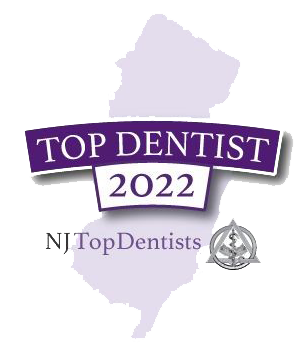
Is Wearing a Mask Giving You Head or Jaw Pain?

Wearing a mask is a critical step in slowing the spread of COVID-19. But as important as masks are to public health, you may find that wearing masks for extended periods of time leads to an increase in the frequency or duration of headaches or temporomandibular (TMJ) pain.
Dr. Ivan Stein of the Headache & TMJ Center of New Jersey encourages you to continue wearing a face mask per the Centers for Disease Control and Prevention’s guidelines. In this post, he sheds light on why masks can cause head and jaw pain, and offers suggestions for achieving relief from the discomfort.
Masks, TMJ Pain and Headaches
If you find yourself with a throbbing headache after wearing your mask all day, the problem could be due to dehydration. If your jaw aches after wearing your mask, you may be inadvertently tensing your jaw or jaw muscles to keep the mask in place, or projecting your chin or jaw forward. Holding your jaw in a tense position for an extended length of time fatigues your jaw and jaw muscles, causing pain and discomfort.
Another contributing cause may be stress related to the pandemic. Stress increases muscle tension around your entire body, including your TMJ.
Tips to Minimize Head or Jaw Pain
Get a well-fitting mask
The fit of your mask is important to preventing or minimizing head or jaw pain. Your mask should fit snugly across your nose and should not slip around on your face. Make sure the ear loops of your mask don’t pull or tug on your ears, as that can cause pain to develop in and around the ears (including around the jaw joints). If the ear straps of your mask are too tight, try ear savers or extenders or a mask that ties behind your head.
Maintain a resting jaw position
Maintaining awareness of your jaw position throughout the day can help minimize pain. You may be pursing your lips, clenching your teeth or contracting your jaw without knowing it. In a comfortable resting jaw position, your teeth should not touch, your lips should touch lightly and your tongue should rest on the roof of your mouth.
Be mindful of your posture
Assess your posture periodically to ensure you aren’t jutting your chin or jaw forward and overworking your jaw muscles. Reset your posture by sitting or standing upright and looking straight ahead with your ears over your shoulders. Try to elongate the back of your neck as much as possible.
Breathe through your nose instead of your mouth
Breathing through your nose helps your jaw stay in a comfortable resting position.
Hydrate
Remind yourself to drink water throughout the day and stay hydrated. You can set water break reminders on your smartphone or computer.
If you have additional questions about masks and headache or jaw pain, contact our practice today.

